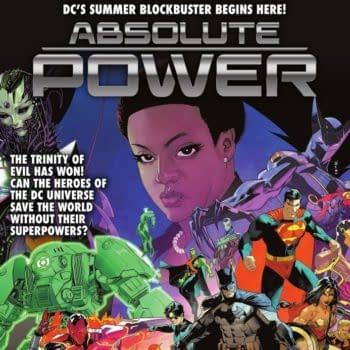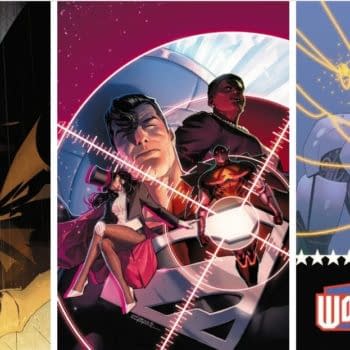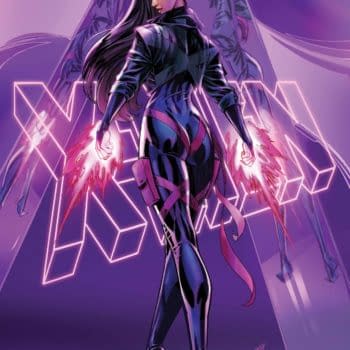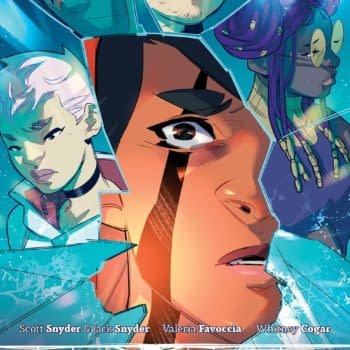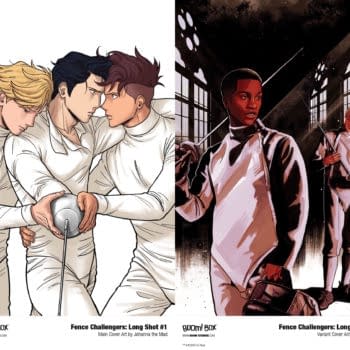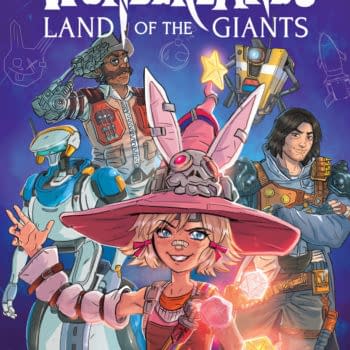Posted in: Recent Updates | Tagged: zuda
Zuda Zuda Hey by Patch Novak

Zuda, a webcomic subsidiary of DC comics, may be one of the best ways for untested talent to get into the industry. No other company out there offers you the chance to get paid to do your own comic with minimal editorial interference. It is, however, a competition where online voting is a key component. And situations like that are always rife with baggage.
Quality is only a fraction of the battle when you're competing with others on Zuda. In the end, the last person standing is usually the person who was the best at marketing himself. If you take a look at any of the comics during the month they're competing, the leading comic usually has the most views. While the comics trailing towards the bottom usually have several hundred, sometimes several thousand less views. What this means is that most people who vote aren't looking at all of the comics. In other words, the competition is not about judging the best out of a batch of ten entrants.
So who does vote? There's three different categories of people who vote. The regular Zuda community, friends and family of the comic creators and then any other fringe crowd drummed up by great marketing. The regular Zuda community is very hard on entrants because most of them are built up of former competitors themselves. For most of them, you need a certain amount of cred before you'll get their vote. The winners of the February 2009 competition, for example, were built up of four previous losing competitors who all banded together. As for the friends and family vote, the creator may be able to count on their vote, but it's pretty certain that most of them are only going to be visiting the site in the future if he or she wins. The odds of them becoming regular Zuda watchers are slim. Meanwhile, the fringe vote is usually built up of just how creative a competitor gets in marketing their comic. Did they manage to get on the right podcast? Were they handing out fliers at their local comic shop? Or did they actually manage to get on TV?
How exactly did Deadly win in March 2009 when three days before the competition ended, it was over a hundred votes behind? The creator, living in Australia, managed to get on a TV newscast talking about 'the world's biggest webcomic competition.' Suddenly you've got home country pride at play and Deadly sweeps past the competition. April 2009 had a similarly controversial victory. The Kind You Don't Bring Home to Mother was winning for the majority of the month. But Earthbuilders managed to pull ahead towards the end. One look at the comments page under Earthbuilders reveals a large amount of Spanish being spoken. Clearly this was another example of 'home country pride' at work.
None of this is very flattering to the website, but the staff at Zuda probably wouldn't have it any other way. Without doing too much marketing themselves, they're getting thousands of new visitors every month. And a lot of these viewers aren't your usual comic crowd. One would say that this is doing wonders for the industry. But others would argue that showing the work of amateurs to outsiders does more damage then good when the objective is to gain respectability. In the end there's no real way of knowing, though.
Another situation that goes on is when you have pros with an established fan base enter the competition. Josh Howard, of Dead at 17 fame, was involved in the May competiton with Amber Hale, Supermodel. This was a regular comic that Howard had done as a commission several months prior to the writers reformatting it to enter it into Zuda, though so it wasn't exactly a Josh Howard property. In the end a previous Zuda competition loser ended up winning that month with Lily of the Valley. The next month, however, Dwight L. McPherson, who has had published work at several well known independent studios and has his own established fan base, ended up winning with Sidewise.
Winners of the competition end up getting $250 a page. This is great deal for both parties. Creators get to get paid to work on their own properties (Zuda only really owns the temporary exclusive rights to host and publish) and Zuda gets the entire package, including writing, illustration and lettering for the one fee. Compare this to DC, who pays the writer, artist, inker, colorist and letterer each individual fees and you're looking at something much higher then $250 a page. Can anyone name any other company out there who offers to pay relatively unknowns to produce creator owned work?
All entrants get $500 in order for Zuda to have the exclusive rights to host the webcomic. But their rejection policy is sometimes a source of controversy. In June there were several entrants whose translated english created some awkward reading. And how did The Rise and Fall of the Penguin make it into the competition in April? Who out there is waiting for a Stephen Colbert NASA rocket moment where a famous personality sabotages things by successfully getting people to vote for something clearly very bad?
In a perfect world, winners in this competition would be chosen because of the overall strength of their craft, but that's something that's impossible to enforce. But then again, artists are generally known for being bad at business, so training them in marketing might just be the proverbial blessing in disguise. So while it's the best way for untested talent to get their foot in the door, it's no different then the world of comic publishing in that you better be willing to fight to get your work seen. The comic creators that fans enjoy so much in print today all had to learn this lesson at one point.
——————-
So, how about all of you bleeders set aside some time to view all of the contestants and vote for what you feel is the best.
And because you didn't ask for it, my opinion on July's competition. Overall, this is a stronger month then the last two. The last two months were very boring as the winners retained their lead all throughout. I'm thinking this won't be the same case this month.
9th Year: Well done, but nothing terribly interesting or original. I'm sure it could hook me if it continued, but right now I'm left not caring.
Assignment: Cool art style, but I'm not a big fan of the over the top acting and there were some confusing storytelling moments with writing and art.
Bloody Pulp: An interesting end, but I have no clue if this will lead into something I might find interesting because we're not given any clear story direction beyond a twist.
Children's Games: Turned out to be more fun then I expected. We get some fun moments and then a bad guy shows up. But, again, where is this all leading? We're given nothing in the way of story direction.
Interrogation Control Element: Very intelligent and well researched. The premise makes me fearful that this could get really boring, but I'm trusting there will be many explosions amongst the liberal ranting.
Metropolitan Siege: Some problems with the coloring and facial consistencies, but otherwise good art and a story with a clear direction.
RockStar: Cool art and some laughably bad dialogue. Unfortunately, the concept appears to be a very generic superhero story.
The Adventures of Mr. Simian: Some fun characters, great art and a story that's going in a clear cat-and-mouse direction.
The Ares Imperative: 7 pages of exposition and then a big splash page. I was hoping something would happen or that the characters would do something, but all I got was talking.
Vigilante Granny: The best penciling and inking out of the bunch. But once more, there's no clear story direction. Where is this all headed? Why would I want to read more?






